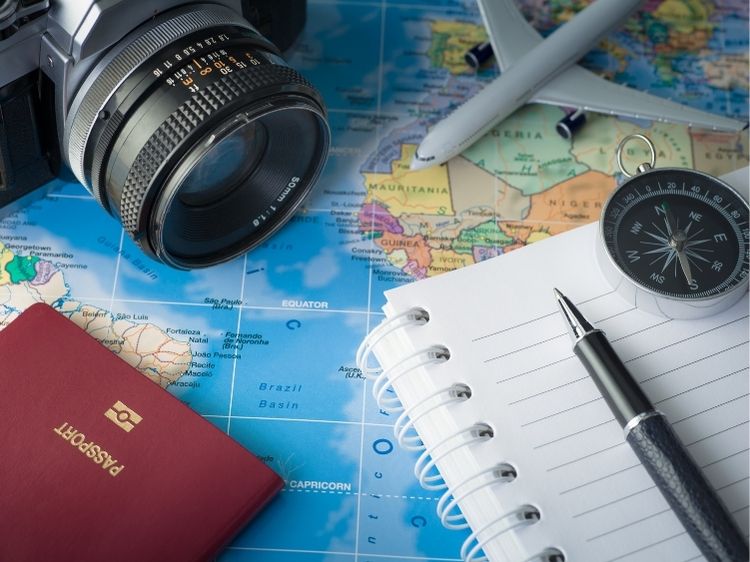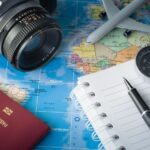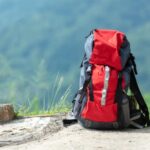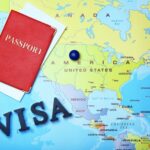Bahamas Jamaica Travel Advisory: Stay Informed, Stay Safe
Planning a tropical getaway to the Bahamas or Jamaica? These stunning Caribbean islands are a dream destination for many, with their white sandy beaches, crystal-clear waters, and vibrant cultures. But before you pack your bags, it’s essential to check the latest Bahamas Jamaica travel advisory. From safety precautions to health updates, knowing what to expect can ensure your trip is not only enjoyable but also safe. So, what’s the scoop on current travel advisories for these two popular islands?
Let’s dive into the details and cover everything you need to know to make your trip as smooth as possible. Whether it’s crime reports, natural disaster preparedness, or health concerns like the ongoing global pandemic, we’ve got you covered. Keep reading for an in-depth guide!
Travel Advisories: Why They’re Important
Before we jump into specifics, you might be wondering: Why are travel advisories such a big deal?
Travel advisories exist to keep travelers informed about any potential risks or dangers in a specific destination. They are often issued by governments, such as the U.S. State Department, to help citizens make informed decisions. These advisories cover everything from crime levels and political unrest to natural disasters and health outbreaks. A quick glance at a travel advisory could be the difference between a dream vacation and a nightmare.
Bahamas Travel Advisory: What You Should Know
The Bahamas is often seen as a laid-back, tranquil destination. But like any country, it has its own set of challenges. Let’s go over the most recent advisory.
1. Crime Levels
The Bahamas, especially Nassau, has seen fluctuating crime rates. While the islands are generally safe for tourists, petty crimes like pickpocketing, theft, and scams can occur, especially in crowded areas. Travelers are encouraged to avoid certain high-risk areas after dark, particularly in Nassau.
Key Tips:
- Stick to well-lit areas at night.
- Avoid flashing expensive items like jewelry or electronics.
- Be cautious when using ATMs, particularly at night.
2. Health Considerations
The global pandemic has affected travel to nearly every country, and the Bahamas is no exception. Travelers should remain updated on COVID-19 requirements, which may include testing, vaccination, or quarantine depending on your point of origin. Apart from COVID-19, you should also be aware of mosquito-borne illnesses like Zika and dengue fever.
Key Tips:
- Carry insect repellent.
- Ensure you have travel insurance that covers COVID-19 and other medical issues.
- Keep your vaccination records handy in case they’re required.
3. Natural Disasters
The Bahamas is situated in the hurricane belt, which makes it prone to tropical storms and hurricanes during the June to November hurricane season. Travelers should always keep an eye on weather forecasts before and during their trip.
Key Tips:
- Purchase travel insurance with natural disaster coverage.
- Monitor local weather updates through reliable sources.
- Have a plan in place for evacuation if necessary.
Jamaica Travel Advisory: Stay Safe, Stay Smart
Jamaica, known for its reggae rhythms and rich culture, also faces some challenges that tourists should be aware of.
1. Crime Concerns
While Jamaica’s tourism hotspots like Montego Bay and Negril are relatively safe, some parts of Kingston and Spanish Town are considered higher risk due to gang-related violence and crime. The Jamaica travel advisory highlights these regions as areas where tourists should exercise extra caution.
Key Tips:
- Stay in well-known tourist areas.
- Avoid wandering around unfamiliar neighborhoods, especially after dark.
- Keep a low profile and avoid discussing travel plans openly.
2. Health and Safety
Similar to the Bahamas, Jamaica has its share of health-related concerns, especially in light of COVID-19. Depending on your home country, you may need a negative test or proof of vaccination to enter. In addition to COVID, travelers should take precautions against mosquito-borne illnesses like dengue and chikungunya.
Key Tips:
- Stay hydrated and protected against mosquito bites.
- Be mindful of food and water safety—avoid street food from unknown vendors.
- Carry a small first-aid kit for minor injuries or illnesses.
3. Hurricane Season
Just like the Bahamas, Jamaica is vulnerable to hurricanes during the Atlantic hurricane season. Always keep an eye on local weather updates, particularly if you’re visiting between June and November.
Key Tips:
- Stay informed about local weather conditions.
- Book accommodations with solid hurricane plans in place.
- Have access to emergency numbers and evacuation routes.
Travel Safety Tips for the Bahamas and Jamaica
When traveling to either of these beautiful Caribbean destinations, it’s always a good idea to take some general precautions:
- Stay Connected: Keep your phone charged and always have access to a local SIM card or international roaming.
- Stay Informed: Follow travel advisories and register your trip with your country’s embassy if necessary.
- Be Prepared: Ensure your travel insurance covers both health issues and unexpected events like natural disasters.
FAQs
Q: Is it safe to travel to the Bahamas right now?
A: The Bahamas is generally safe, but travelers should be mindful of crime in Nassau and health risks related to COVID-19 and mosquito-borne illnesses.
Q: Do I need a COVID-19 test to enter Jamaica?
A: It depends on your country of origin and current Jamaican health protocols. Check the latest requirements before you travel.
Q: What’s the best time to travel to the Bahamas and Jamaica?
A: The best time to visit is from December to April when the weather is dry and pleasant. Be cautious of the hurricane season from June to November.
Q: Can I get travel insurance that covers hurricanes?
A: Yes, many travel insurance policies cover natural disasters like hurricanes. Always check the fine print before purchasing.
Q: Are there areas I should avoid in Jamaica?
A: Avoid high-risk areas like certain parts of Kingston and Spanish Town. Stick to well-known tourist spots and follow local advice.
Conclusion
While the Bahamas and Jamaica offer incredible experiences, it’s always smart to be aware of travel advisories and safety tips. With a little preparation, you can enjoy your vacation without any unnecessary worries. Whether you’re soaking up the sun in the Bahamas or grooving to reggae tunes in Jamaica, your safety should always come first.
Stay informed, pack wisely, and have a backup plan in case of unexpected events. Now that you’ve got all the essential information on the Bahamas Jamaica travel advisory, you can focus on what really matters—having an unforgettable Caribbean adventure!
Authoritative Links:
- U.S. State Department Travel Advisories: travel.state.gov
- Centers for Disease Control and Prevention (CDC): cdc.gov
- World Health Organization (WHO): who.int






